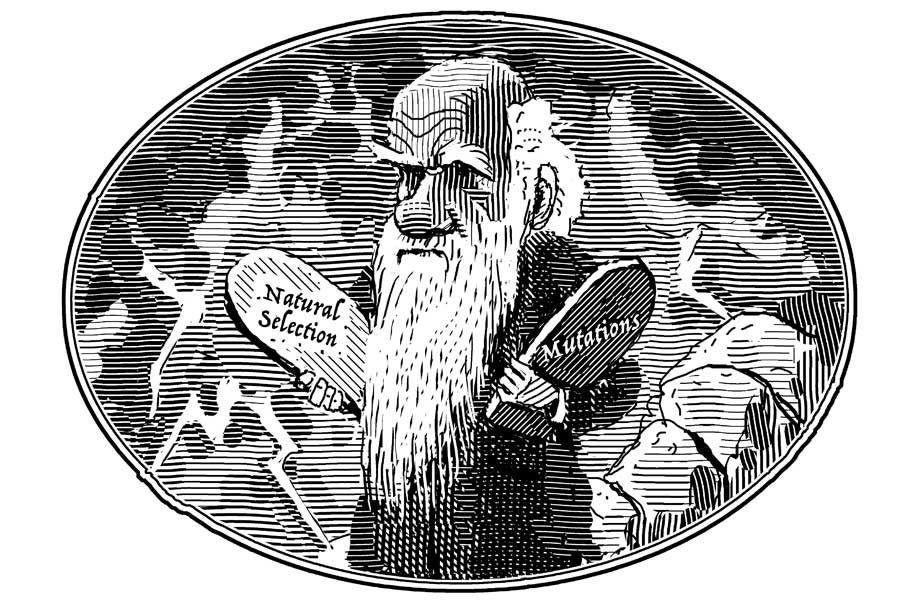Yes I agree. I know we've discussed this to a certain degree already but there's more at stake than just whether or not a materialist or atheist is capable of acting morally. My roommate and his bible believing co worker went to a debate earlier this week on morality between an Atheist and a Christian speaker. I probably should have gone but I really had no interest. Like I said there's really way more a stake than whether a 'non believer' can be a good person. I will be interested in what you have to say, luc. If you want to share some of what you have in mind here before hand, maybe the group can do some more brain storming.
Yes, good idea. Here are some thoughts:
I'd like to start with a little personal account on how Darwinist thinking crept into my life. Not only materialism/the denial of anything higher to aspire to, even if it's "just" basic ethical standards, but also the view that Darwinian dog-eat-dog is in itself the ultimate goal, something to aspire to! In my experience, that's really how it works.
I would then cover some of Stove's points in Darwinian Fairytales, such as the dilemma that Darwinism obviously doesn't seem to add up with the
human experience, and how people have tried the Hard Men/Soft Men way out of this (see
this post for a summary). Also, how perverse and toxic the denial of genuine altruism is in Darwinian thinking, i.e. selfish genes nonsense etc.
It's also crucial for people to understand that Social Darwinism, Eugenicism etc. was present in Darwinism from the very beginning, and that Hitler and his mad predecessors weren't "misusing" Darwinism, but applying it. The case of the communists is interesting as well, though a bit more complicated - they embraced Darwinism on the one hand, but on the other hand used it as the enemy that needs to be overcome (again committing the Hard Men fallacy, but the other way around: either Darwinism is true and then there's no way to escape it, or it isn't, but then Materialism is in trouble...). In any event, communism is a materialist doctrine if there ever was one. In that regard, the question you mentioned whether moral behavior is possible without "religion" (or rather the recognition of something higher, some natural law or whatever) is very relevant.
I also would like to tie all this to Jordan Peterson's ideal of the "meek man", i.e. the strong man who knows how to control himself. Because as I see it, if you believe in Darwinism, you kind of have 2 options: either you embrace the whole dog-eat-dog scenario and actively participate in dog-eat-dogging, or, if you feel that this can't be right, you "tune out" and become a weakling - and as a weakling, as JP always says, you can be as destructive as the ruthless dog-eat-dogger.
In many ways, Peterson's "strong guy who keeps his sword sheathed" is the antidote and opposite of the Darwinian man. It's the married guy who's in great shape and has his act together, and yet doesn't cheat on his wife even though he could. It's the man who dresses well and has a strong character, yet he uses his status for good instead of gaining personal advantage. It's the guy who has developed such strength that he could easily bully most people into submission, and yet he doesn't, but is prepared to sacrifice his good standing and very survival to help others etc. It's precisely the kind of man that shouldn't exist according to Darwinian thinking, and whose nature and goals are incomprehensible in a Darwinian/materialist framework.
At the end of the day, Darwinism implies two imperatives:
- sleep around as much as you can
- never sacrifice personal safety for anything (i.e. survival)
And since Darwinism claims that all the marvels of life arose out of these two principles, these are the Darwinian "God". So no wonder then that they become moral imperatives in the Darwinian world, even though most Darwinians would protest that. This is another point that's worth unpacking a bit more I think.
Anyway, these are the ideas I came up with so far.




